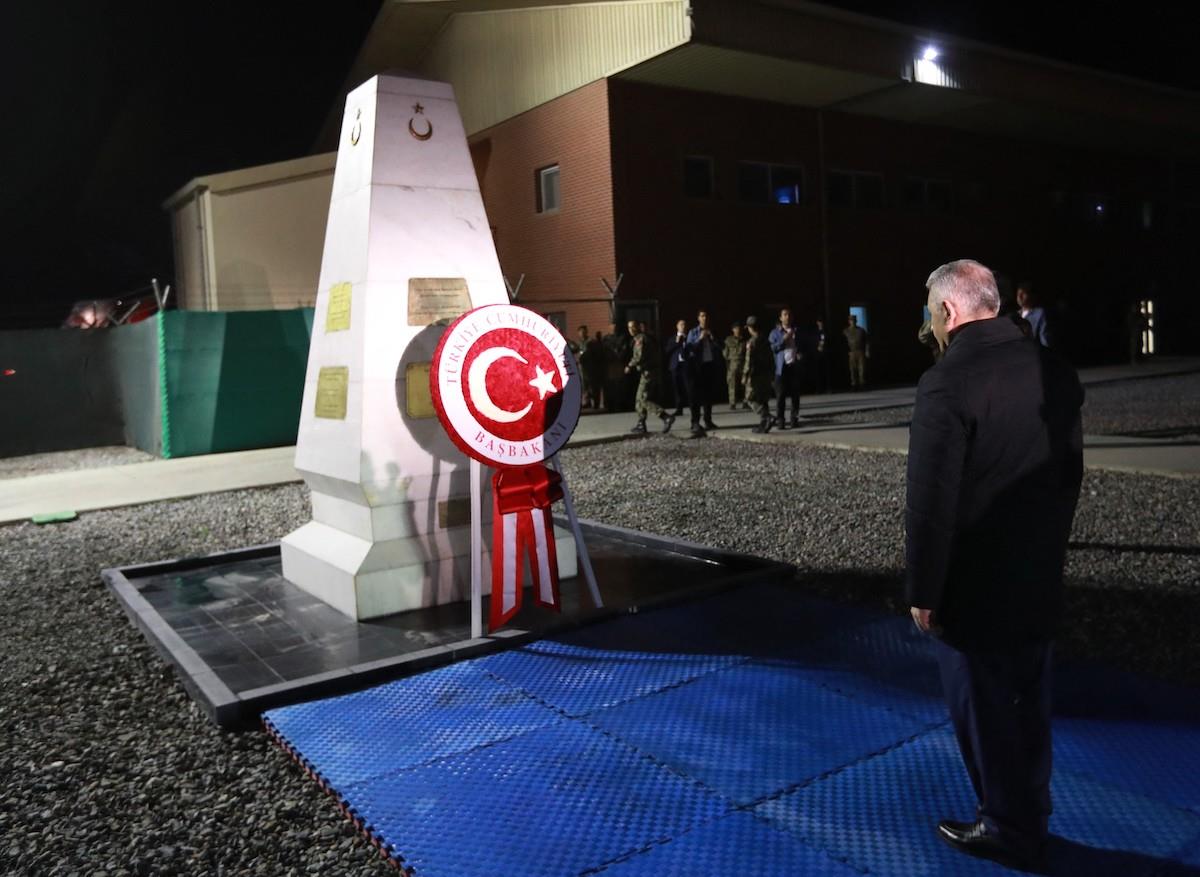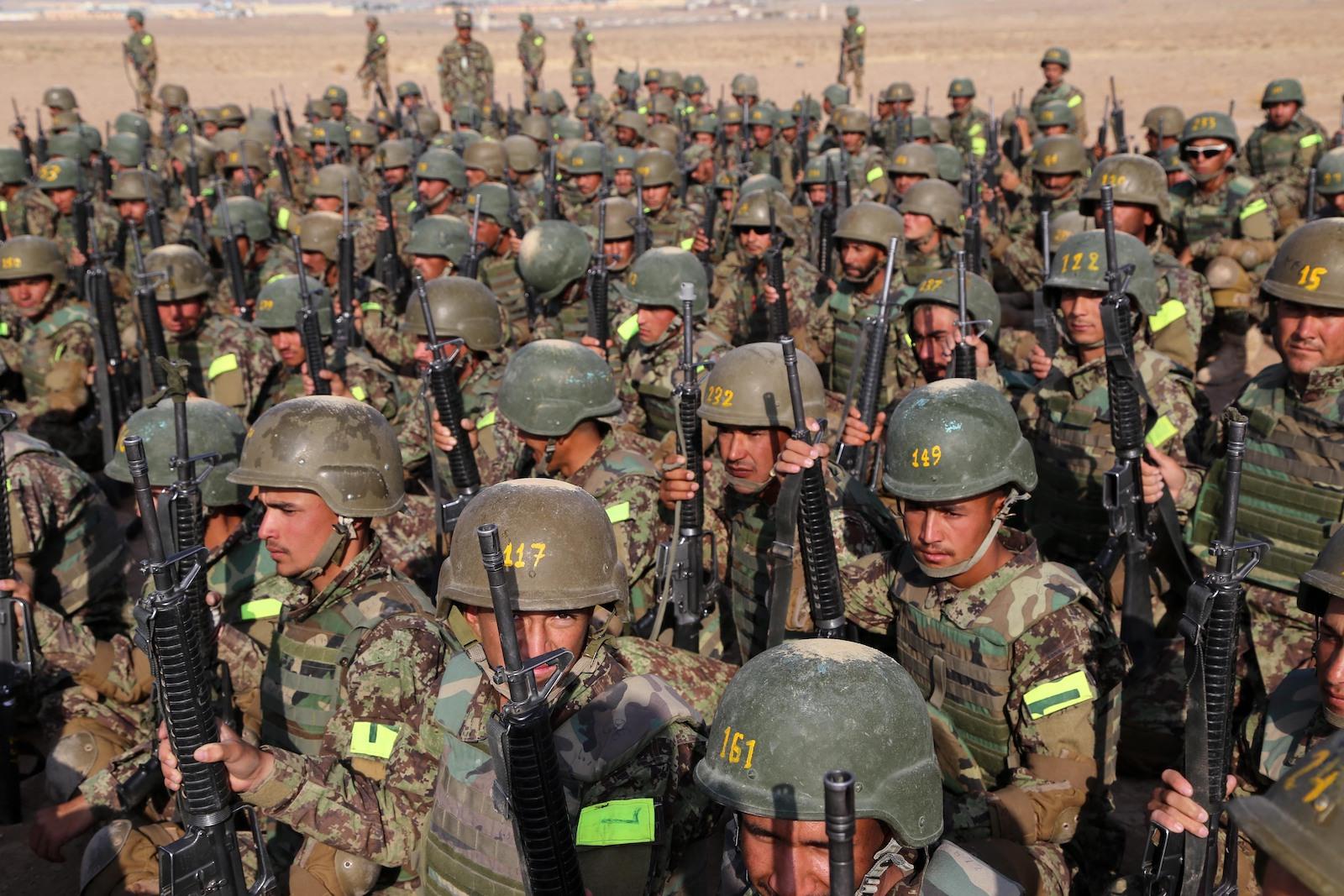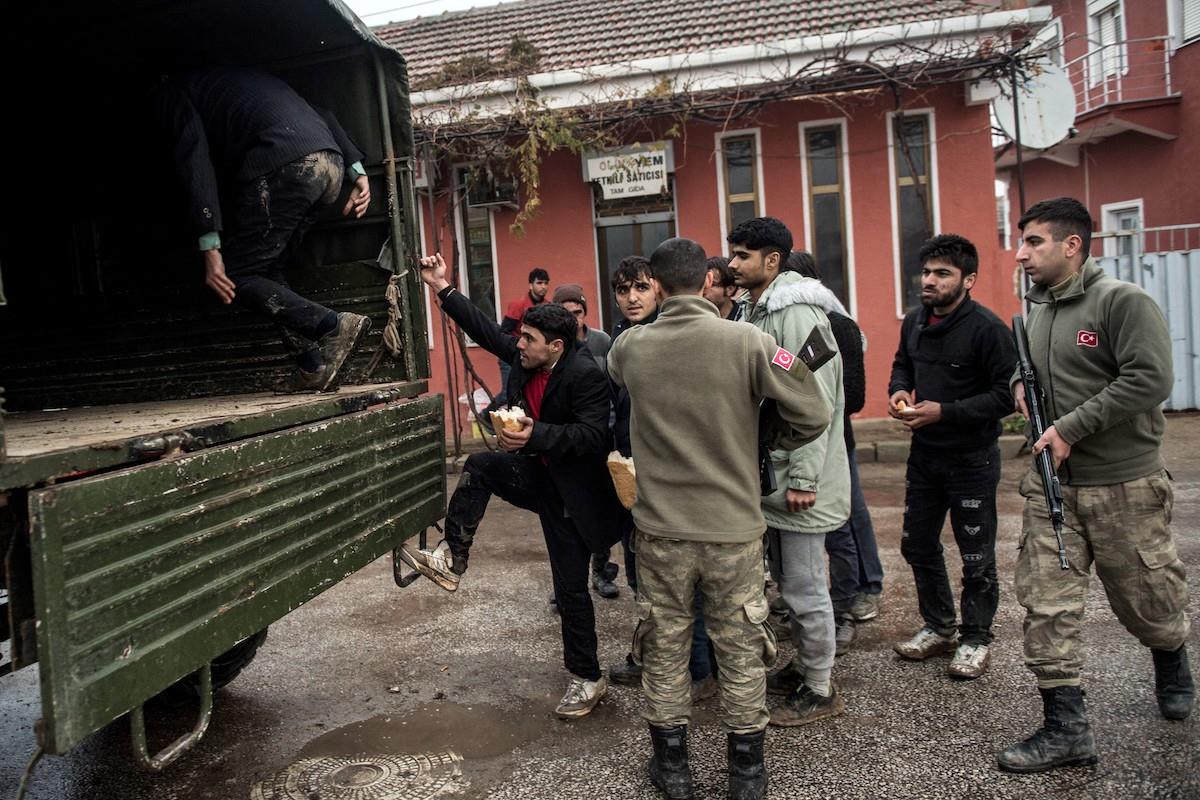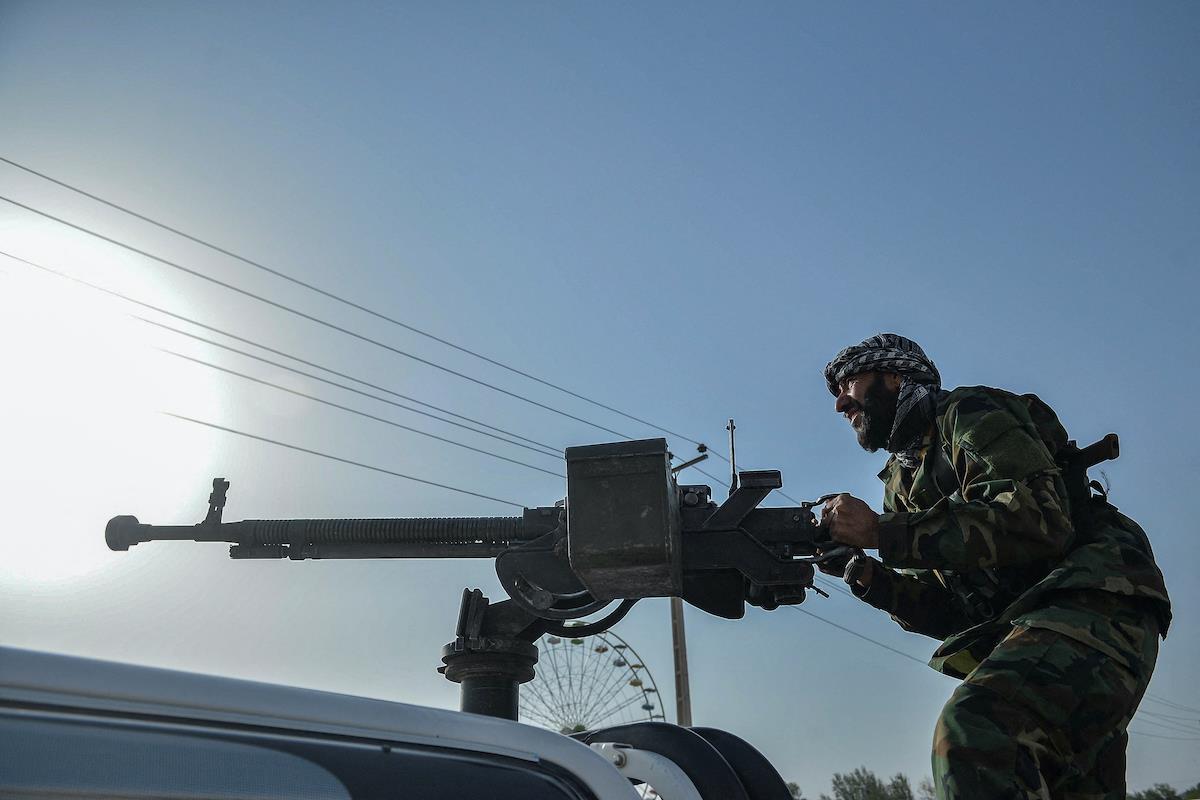
Turkey's vision for Afghanistan comes into view
(MENAFN- Asia Times) Since Turkish President Recep Tayyip Erdogan announced last month that his nation's troops would continue to secure Kabul international airport in Afghanistan, the leader has been both pressured and praised.
The Taliban, which has recently accelerated its military campaign across the war-torn country, on July 13 described any further Turkish military presence as“reprehensible” and warned of dire“consequences.”
Yet Ankara's agreement to secure the vital air link was also key to US President Joe Biden's“positive and productive” description of his meeting with Erdogan at June's NATO summit.
Indeed, Turkey's continued presence at the airport helps the US and its allies both cover their military withdrawal and maintain links to their embassies and missions in the Afghan capital.
It also helps Turkey mend some of its battered fences with the US, after years of argument and division.
“Ankara wants to bring these relations to a better ground,” former Turkish ambassador to NATO Mehmet Fatih Ceylan, told Asia Times.“Afghanistan is one area where Turkey can do this.”
Yet the Turkish garrison at Kabul airport may be about more than just Ankara improving relations with its NATO allies.
Turkey has long-standing links to Afghanistan after years of close involvement in the country and centuries of cultural and historical ties to the region.
“There's a school of thought here that we can't leave Afghanistan in the lurch,” adds Ceylan.“We have unique relations with them, with Pakistan, and with the Turkic republics surrounding them. The thought was, we can't just sit back and watch events unfold.”
However, what happens now remains highly uncertain as Afghanistan falls deeper into conflict, while the country also becomes a battleground for a range of competing international interests.

Turkey's Prime Minister Binali Yildirim lays a wreath at the memorial for martyred Turkish soldiers in Afghanistan after inaugurating the Martyred Senior Master Sergeant Bulent Aydin Mosque at the NATO base in Kabul on April 8, 2018. Photo: AFP / Hakan Goktepe / Anadolu Agency Follow the gray wolf
A popular Turkish foundation myth has the original Turks, denizens of Central Asia and western China, following a“gray wolf” west out of their ancestral homelands to their current Anatolian location.
Reality or myth, many of today's Turks do have ancestry and family stretching across Central Asia, with the Turkic peoples including Azeris, Turkmens, Uzbeks, Kyrgyz and Uighurs.
Afghanistan has also long had a special place in recent Turkish history.
“Turks see Afghanistan as a society with kinship,” Murat Aslan, from the SETA Foundation in Ankara, told Asia Times.“Since the 1920s, Turkey has been assisting the Afghans, while the Afghans supported us during our War of Independence.”
Another nation that established links with modern Turkey early on was Pakistan, Afghanistan's neighbor, with Ankara one of the first to recognize this fellow Sunni Muslim nation's independence.
“Turkey has excellent strategic relations with all these neighboring states,” Zalmai Nishat, a researcher at the Afghanistan Institute of Strategic Studies in Kabul, told Asia Times.
It also has a lot of recent experience on the ground, with a Turkish general, Hilmi Akin Zorlu, commanding NATO's initial deployment, the International Security Assistance Force (ISAF), from 2002-2003.
While Turkish troops have played no combat role in the country, they have trained thousands of Afghan security forces over the last two decades, while also investing in the country's education and infrastructure.

Afghan army soldiers take part in a military training at a training center in Herat province, western Afghanistan, Sept. 21, 2016. Photo: AFP / NurPhoto / Nasim Seyamak
Turkish troops have also been responsible for the security of Kabul airport, under a separate, non-NATO mandate.
Turkey's relationship with Pakistan and Ankara's good relations with Qatar, where the Taliban have a delegation, also potentially give Turkey access across the frontlines.
“Turkey is a Muslim member of NATO, has supported the Afghan government for years in a non-combat role and can also bring a lot of pressure to bear on the Taliban, via its ties to Pakistan and Qatar,” says Nishat.
Pakistan's intelligence services are widely held to have connections to the Taliban, although the Pakistani government strongly denies any link.
That access to both sides may also be having results already.
“In recent days,” says Ceylan,“back channels via Qatar and Pakistan do seem to have been trying to soften the Taliban's approach to a Turkish presence, pressuring the more radical elements in the Taliban to accept at least some foreign force at the airport.”
Indeed, with the Taliban now“making nice” with neighbors such as China,“a different pitch and tone from the Taliban is emerging,” adds Ceylan.
At the same time,“while over the years, all our neighbors have interfered in Afghanistan,” adds Nishat,“Turkey has no boundary with us, helping it to be seen as quite different from Iran, Russia or China.”
Yet Afghanistan is also a“mosaic” of different groups and ethnicities, says Nishat, with Turkey“seen as closer to the Turkic ethnicities, such as the Uzbeks, from the perspective of other groups. Turkey needs to be very mindful of this.”

Afghan refugees watched by the Turkish border army sit in a truck near the border with Greece in 2018. Photo: AFP / Bulent Kilic Interests and aims
Meanwhile, major domestic pressure is also building on Erdogan over Afghanistan.
“Instability there leads to refugees, with many of these being sent on through Iran to Turkey,” says Aslan.“Turkey already has 3.5 million Syrian refugees, along with many others, and can't absorb another wave of refugees heading in.”
Those bonds of kinship have also made Turkey a key destination for many fleeing the growing violence, with some 200,000 Afghans already estimated to be living in Turkey, according to the UN.
Yet popular sympathy, both for refugees already in Turkey and for those coming in, is at an all-time low.
One example of this that recently went viral on social media was from the opposition Republican People's Party (CHP) mayor in the northwestern Turkish town of Bolu, Tanju Ozcan.
He tweeted on July 28 that“hospitality has gone on too long,” after announcing plans to charge“foreigners” – refugees – 10 times the normal rate for water and waste services.
The CHP has since disavowed this, but clearly political pressure is mounting for Erdogan to stop the refugee flow – a factor behind recently announced plans to extend an existing wall on the Turkish-Iranian frontier to the entire length of the border.

Afghan security personnel and Afghan militia fighting against the Taliban stand guard in Enjil district of Herat province on July 30, 2021. Photo: AFP / Hoshang Hashimi Quagmire or opportunity?
Meanwhile, fighting on the ground in Afghanistan continues, with Turkey's troops at the airport likely to find themselves in the midst of great uncertainty.
“The most likely scenario will be one of division in the country,” says Aslan,“with the Taliban taking control of rural areas and the government in control of the urban ones.”
In such circumstances, Turkey's actual options may be quite limited, if it seeks to do more than just hold the airport.
“There will be little that can be done in terms of promoting any wider peace and stability,” adds Aslan.
That's a grim prospect for a country where already since the start of this year some 294,000 people have been driven from their homes, 77,000 of them just in the last month, according to the UN.
“In just one town in Takhar province, 9,000 families who have fled there are just living in the open, in the center of the city,” says Nishat.“Multiply that by all the other areas, north and south, east and west, and you can see what it's like for people.
“It's very, very bad.”

Legal Disclaimer:
MENAFN provides the
information “as is” without warranty of any kind. We do not accept
any responsibility or liability for the accuracy, content, images,
videos, licenses, completeness, legality, or reliability of the information
contained in this article. If you have any complaints or copyright
issues related to this article, kindly contact the provider above.


















Comments
No comment